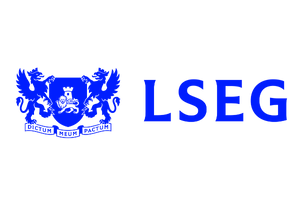London Stock Exchange Group (LSEG) is a leading global provider of financial markets infrastructure, data, analytics, news, and index products, serving over 44,000 customers in more than 170 countries. With a history spanning over three centuries, LSEG supports innovation, risk management, and job creation by partnering with clients throughout the trade lifecycle—from pre-trade decision-making to capital raising and clearing. The group employs over 26,000 people globally, including more than 3,300 employees across 18 EU Member States, operating key financial market infrastructures such as LCH S.A. and BeyonRatings in France, Turquoise Europe and Quantile in the Netherlands, and Refinitiv MTF and FXAll in Ireland. LSEG’s UK-based clearing house, LCH Ltd., is supervised by the European Securities and Markets Authority (ESMA). Its products and services, including FTSE Russell and Refinitiv, are widely used by EU financial market participants. LSEG’s main EU lobbying focus areas include the Savings and Investments Union, Capital Markets Union, Sustainable Finance regulations (such as the Taxonomy and Corporate Sustainability Reporting Directive), Digital Operational Resilience Act, AI Act, Markets in Financial Instruments Directive, Anti-Money Laundering framework, and others related to financial market infrastructure and regulation. The group engages extensively with EU institutions to influence policy and regulatory frameworks that affect capital markets and financial services across Europe
-
EU Transparency Register ID: 550494915045-08
-
First registered: 28 November 2014
-
Headquarters: London, United Kingdom
-
EU Office: Brussels, Belgium
-
Employees globally: 26,000+
-
EU employees: 3,300+ across 18 Member States
-
Key EU infrastructures: LCH S.A., BeyonRatings, Turquoise Europe, Refinitiv MTF, FXAll
-
Main EU lobbying topics: Capital Markets Union, Sustainable Finance, Digital Resilience, AI regulation, Market infrastructure regulation, Anti-Money Laundering, Benchmarks Regulation, among others
No related lobbyists found.
LSEG’s lobbying activities fall primarily under:
-
Financial and economic affairs
-
Capital markets and investment services
-
Sustainable finance and ESG regulations
-
Digital and operational resilience in financial services
-
Market infrastructure and clearing services
-
Anti-money laundering and regulatory compliance
LSEG networks with multiple affiliated organizations and industry groups within the EU, including:
-
Key financial market infrastructures it operates (LCH S.A., Turquoise Europe, Refinitiv MTF)
-
Industry forums and expert groups related to capital markets and financial regulation
-
Advisory committees and high-level groups supported by the EU
-
Collaborations with European financial regulatory bodies such as ESMA
-
Participation in platforms related to sustainable finance and digital operational resilience
-
Lobbying expenditure for 2024: between €1,000,000 and €1,249,999
-
Lobbying expenditure for 2025 (reported so far): approximately $300,000 (about €280,000)
-
Total lobbying costs since registration have varied yearly but have consistently been in the high six-figure to low seven-figure euro range
-
egistered in the EU Transparency Register since 2014
-
Engages with European Parliament, European Commission, and Council of the EU
-
Participates in EU advisory and expert groups related to financial services and market regulation
-
Interacts with ESMA and other supervisory authorities for market infrastructure
-
Complies with EU transparency and lobbying regulations, including publishing meetings and financial data
-
Total high-level Commission meetings recorded: 52 (as of early 2025)
-
Regular meetings with European Parliament members, Commission officials, and other EU stakeholders on topics such as sustainable finance, market infrastructure regulation, and digital resilience
-
Meetings span various EU institutions and advisory bodies since registration in 2014, with increased activity in recent years reflecting regulatory developments


